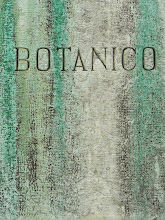 «The shepherd went to fetch a small sack and poured out a heap of acorns on the table. He began to inspect them, one by one, with great concentration, separating the good from the bad. (…) When he had set aside a large enough pile of good acorns he counted them out by tens, meanwhile eliminating the small ones or those which were slightly cracked, for now he examined them more closely. When he had thus selected one hundred perfect acorns he stopped and we went to bed.
«The shepherd went to fetch a small sack and poured out a heap of acorns on the table. He began to inspect them, one by one, with great concentration, separating the good from the bad. (…) When he had set aside a large enough pile of good acorns he counted them out by tens, meanwhile eliminating the small ones or those which were slightly cracked, for now he examined them more closely. When he had thus selected one hundred perfect acorns he stopped and we went to bed.There was peace in being with this man. The next day I asked if I might rest here for a day. He found it quite natural – or, to be more exact, he gave me the impression that nothing could startle him. The rest was not absolutely necessary, but I was interested and wished to know more about him. He opened the pen and led his flock to pasture. Before leaving, he plunged his sack of carefully selected and counted acorns into a pail of water.
I noticed that he carried for a stick an iron rod as thick as my thumb and about a yard and a half long. Resting myself by walking, I followed a path parallel to his. His pasture was I a valley. He left the dog in charge of the little flock and climbed toward where I stood. I was afraid that he was about to rebuke me for my indiscretion, but it was not that at all: this was the way he was going, and he invited me to go along if I had nothing better to do. He climbed to the top of the ridge, about a hundred yards away.
There he began thrusting his iron rod into the earth, making a hole in which he planted an acorn; then he refilled the hole. He was planting oak trees. I asked him if the land belonged to him. He answered no. Did he know whose it was? He did not. He supposed it was community property, or perhaps belonged to people who cared nothing about it. He was not interested I finding out whose it was. He planted his hundred acorns with the greatest care.
After the midday meal he resumed his planting. I suppose I must have been fairly insistent in my questioning, for he answered me. For three years he had been planting trees in this wilderness. He had planted one hundred thousand. Of the hundred thousand, twenty thousand had sprouted. Of the twenty thousand he still expected to lose about half, to rodents or to the unpredictable designs of Providence. There remained ten thousand oak trees to grow where nothing had grown before.»
The Man Who Planted Trees, Jean Giono, 1954
FOTO: Montado de Quercus suber, Évora.



Sem comentários:
Enviar um comentário